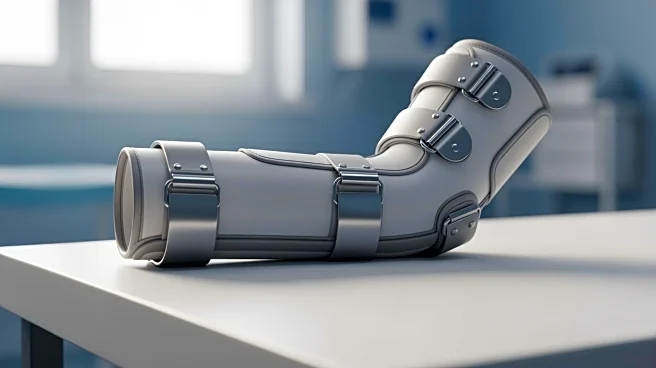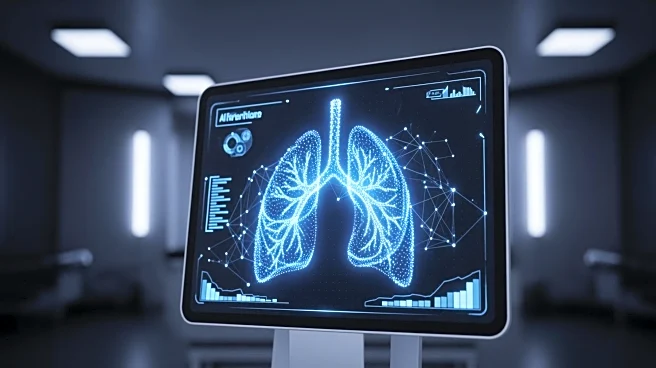What's Happening?
Congress has introduced the Biomanufacturing Excellence Act of 2025 (H.R. 6089), aimed at establishing a National Biopharmaceutical Manufacturing Center of Excellence under the National Institute of Standards
and Technology (NIST). The bipartisan bill seeks to strengthen U.S. capacity for biopharmaceutical manufacturing by providing competitive grants and transaction agreements. The bill emphasizes biotechnology's role in national security, health security, and supply chain resilience. It targets improvements in manufacturing technologies, standardization of quality controls, and workforce training. The bill aligns with the administration's focus on domestic innovation and reducing dependence on foreign biomanufacturing.
Why It's Important?
The Biomanufacturing Excellence Act represents a significant step towards enhancing U.S. biomanufacturing infrastructure, which is crucial for supply chain resilience and national security. By establishing a center of excellence, the bill aims to foster innovation and accelerate the commercialization of biologics and other therapeutic modalities. The focus on standardization and collaboration with regulatory bodies may streamline the pathway from innovation to manufacturing, benefiting sponsors and manufacturers. The bill's emphasis on workforce development and public-private partnerships could attract investment and create jobs, strengthening the U.S. biotech ecosystem and enhancing global competitiveness.
What's Next?
If enacted, the Biomanufacturing Excellence Act could lead to the establishment of the National Biopharmaceutical Manufacturing Center of Excellence, providing a venue for scale-up validation and collaboration with regulatory and industry stakeholders. The bill may influence FDA guidance on advanced manufacturing modalities and shape regulatory strategies for sponsors. Organizations involved in biomanufacturing should consider aligning their strategies with the bill's focus areas, potentially benefiting from the center's resources and expertise. The bill's progress will be closely watched, as it could mark a key inflection point in U.S. manufacturing innovation policy.









